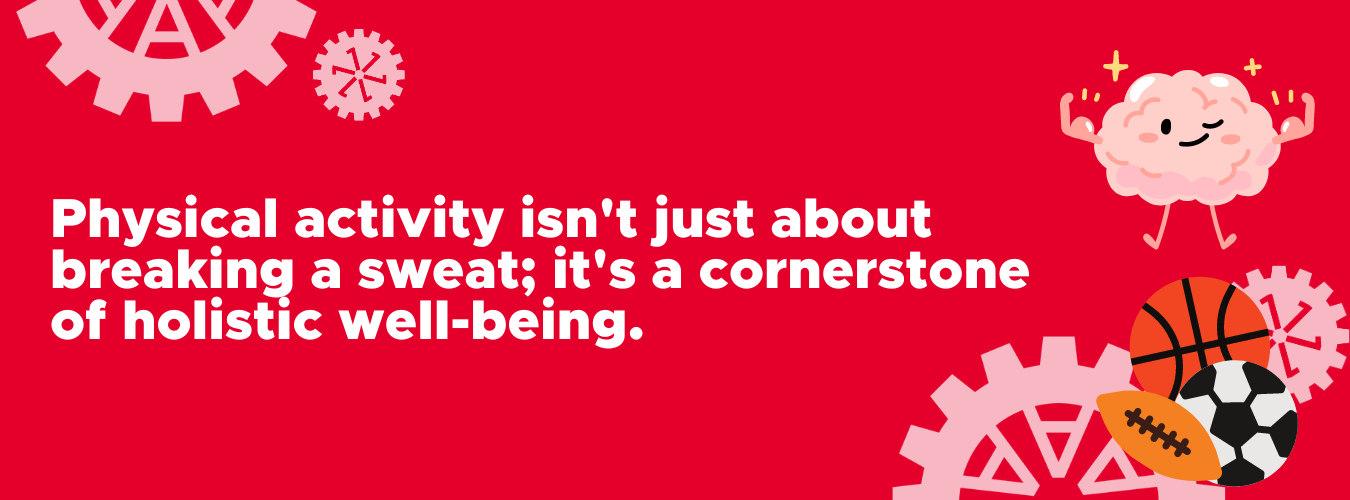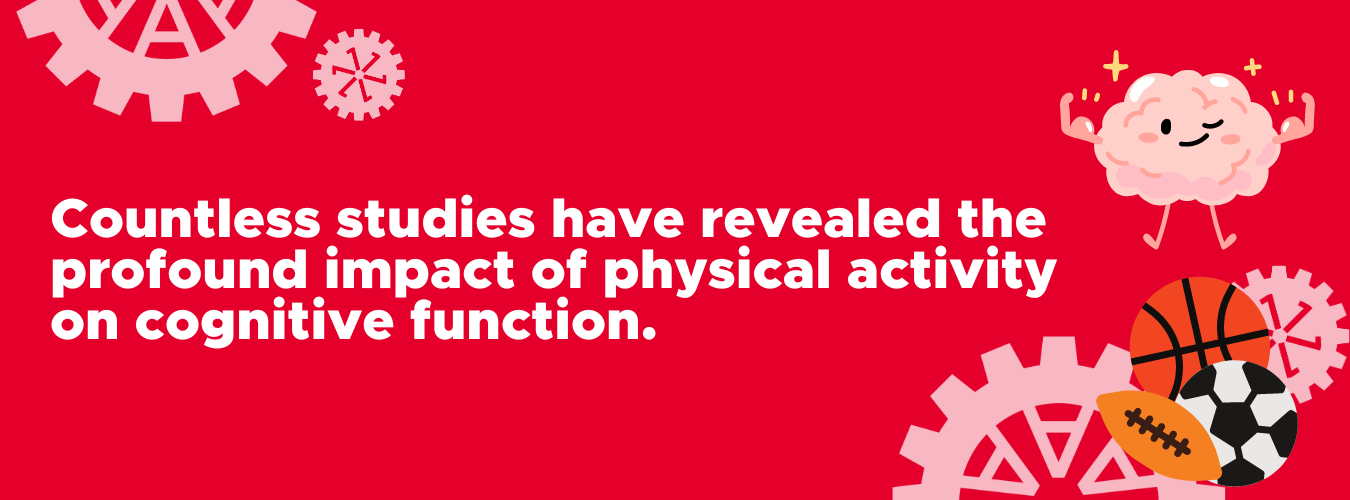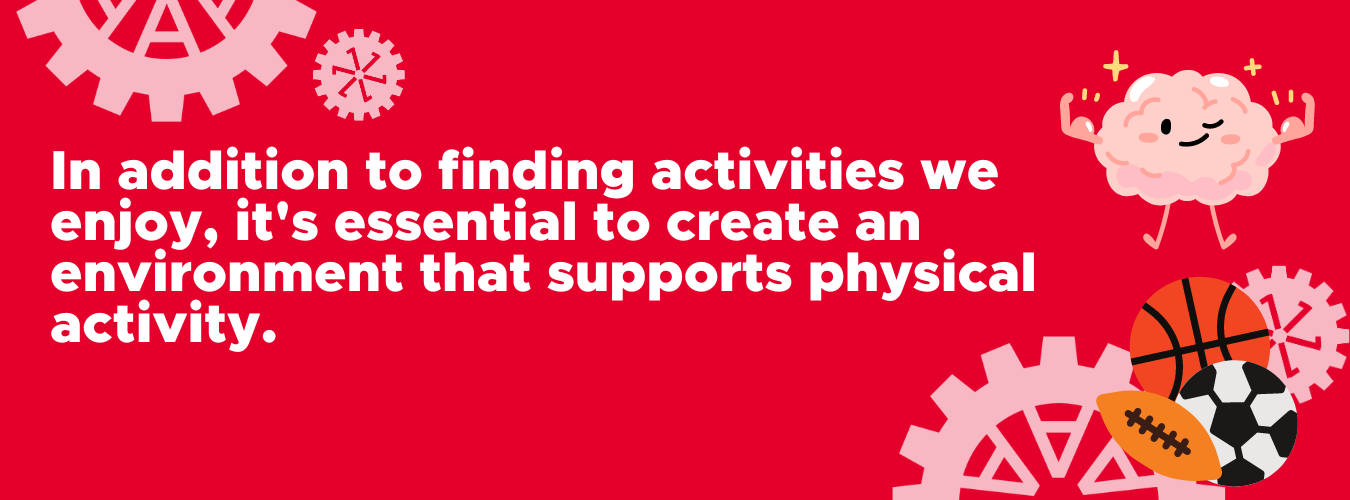The Connection Between Physical Activity and Cognitive Function

In the hustle and bustle of our daily lives, it's easy to prioritise physical health over cognitive well-being. However, by investing in cognitive health, you not only help your physical well-being but also sharpen your mind.
In this blog post, we'll delve into the fascinating relationship between physical exercise and cognitive function, exploring how movement can elevate brainpower and enrich overall mental acuity.
Understanding Cognitive Function:
Before we delve into the connection with physical activity, let's first grasp the essence of cognitive function. It encompasses the mental processes that enable us to acquire knowledge, solve problems, make decisions, and remember information. Essentially, cognitive function spans everything from memory and concentration to logical thinking and creativity. Needless to say, it plays a vital role in navigating the complexities of everyday life.
More Than Just a Workout:
Physical activity transcends mere exertion; it stands as a cornerstone of comprehensive well-being. Whether it involves brisk walks, netball matches, or athletic pursuits, there's a diverse range of activities to explore. While exercise unquestionably bolsters muscle strength, cardiovascular health, and endurance, its impact on mental wellness holds equal importance.
Studies indicate that physical activity can alleviate symptoms of stress, anxiety, and depression by prompting the release of endorphins, the body's natural mood enhancers. Moreover, conquering physical challenges fosters a sense of achievement and empowerment, nurturing resilience and self-assurance in our youth, thereby enhancing their overall quality of life.

Participating in physical activity also stimulates cognitive advancement. Whether children are trekking through nature trails, mastering intricate dance routines, or honing basketball skills, their minds are constantly engaged in processing information, making swift decisions, and coordinating movements.
This cognitive stimulation not only sharpens mental acuity but also reinforces neural connections, establishing the groundwork for enhanced memory, attention, and problem-solving abilities. By prioritising regular physical activity, we not only cultivate physical fitness but also provide their brains with a workout, priming them for peak performance in all facets of life.
How Physical Activity Boosts Cognitive Function:
Numerous studies have underscored the significant impact of physical activity on cognitive function. Whether it's a jog around the block or a session at the gym, exercise has been proven to enhance memory, extend attention spans, and refine decision-making abilities.
But what's the mechanism behind this? Physical activity boosts blood flow to the brain, triggering the release of neurotransmitters and facilitating the growth of new brain cells, all of which contribute to sharper cognitive function.

The Impact Across the Lifespan:
The benefits of physical activity transcend age boundaries. From youngsters to seniors, everyone stands to gain from staying active. For children, physical activity stimulates cognitive development and bolsters academic performance. Conversely, in older adults, it acts as a robust defence against cognitive decline and dementia, aiding in the preservation of memory and cognitive functions well into later stages of life.
Incorporating Physical Activity Into The Routine:
Now that we understand the scientific underpinnings, how can we integrate more physical activity into our children's daily routines? The key lies in discovering activities they enjoy and seamlessly incorporating them into their schedules. Whether it's choosing stairs over elevators, going on family walks, or participating in dance classes or soccer teams, even minor adjustments can yield significant cognitive benefits over time.

Exploring the Role of Nutrition in Cognitive Function:
While physical activity plays a significant role in enhancing cognitive function, the importance of nutrition cannot be overlooked. Just as the body requires proper fuel for optimal performance, the brain relies on a balanced diet for peak functionality.
Studies suggest that specific nutrients, such as omega-3 fatty acids found in fish, antioxidants abundant in fruits and vegetables, and vitamins like B12 and folate, are crucial for promoting cognitive health. By nourishing our bodies with nutrient-rich foods, we provide our brains with the essential elements they need to thrive.
Creating an Environment Conducive to Physical Activity:
More than just enjoying activities, it's essential to create an environment that encourages physical activity. This may involve setting aside dedicated time for family exercise sessions or making minor adjustments to seamlessly integrate movement into our daily routines.

The relationship between physical activity and cognitive function goes beyond what we might initially perceive. Whether it's experiencing the rush of endorphins during a game or the mental agility required on the court, each physical activity contributes to our overall well-being, both physically and mentally.
However, the journey towards enhanced cognitive function doesn't end here. While physical activity serves as a potent tool in honing our mental faculties, acknowledging the significance of supplementary learning, such as after-school tutoring with NumberWorks'nWords, is equally crucial. Just as we challenge our bodies to strengthen through exercise, we must also challenge our minds to expand their capabilities through ongoing education.




